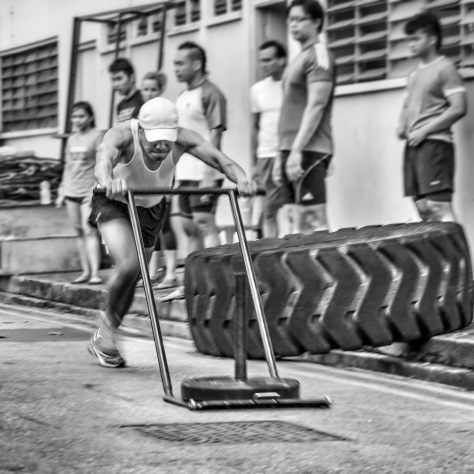I’m pretty happy with the progress of my training. I started cautiously by hiking just 1 mile with no load, nursing some injuries and progressed to walking 22 miles (35 km) with a 22 lb (10kg ) backpack. I feel strong, and I am optimistic as I have been hiking injury free for the last couple of months. I have lost 5.5 lbs (2.5 kg) of muscle mass during the last phase of training, and I am hoping to put some of that back as I enter the end phase of my training which takes place in the final month before my through-hike – Peaking and Tapering.

Peaking (1 week)
The idea behind peaking is the culmination of a gradual buildup of volume (distance) and intensity (load), and not a sudden, panicked rush to train in the final weeks leading up to a through-hike. That would be foolish and could lead to an overuse injury down the line. If your training has not been sufficient, the safer option is to just continue to gradually build up til the last week, and maybe back off a bit, so you don’t arrive at the start exhausted.
For me though, I like to use my peak training like a test run of the first week of the through-hike. Ideally, peaking would take place about a month before my start date, and I would use the opportunity to go on a 3 to 7 day backpacking trip to test out all my gear. Unfortunately, I live in a place where this is not possible, so I will do what I can and link up 3 consecutive training days, hiking about 15 miles each day, carrying 22 lbs (the average weight of my pack for the first week). Why 15 miles? Although my longest training hike has been 22 miles, at longer distances, I felt I was pushing it and needed to rest, or do some other activity, the following day to avoid overuse injuries. 15 miles is a distance that I am comfortable hiking for, at least, a few days continuously.

Things don’t always go according to plan, and on the the 2nd of the 3 continuous days. I got about 5 miles in, when thunderstorms rolled in, so for safety, I bailed. I got the 15 miler the day before, and I continued with the 15 miler the following day. But I want to adapt my training the following week by carrying a heavier load (up to 25 lbs) for shorter distances (up to 15 miles) for a total of 50 miles over 5 continuous days.

Tapering (3 weeks)
Ideally, at the end of my peak training period, I would taper by gradually reducing my training volume and intensity, so that I arrive at Campo on my start date well rested, and ready to go. Generally this means stopping strength training at the end of my peak training period, but maintaining high-intensity training for the first 2 weeks of my taper while reducing the total volume, and for the final week of taper, I would eliminate all high-intensity training and reduce my hiking volume even further. I had to adapt my taper to just two weeks, due to the weather, so we will see how that goes.
It may not absolutely necessary to do any strength or high-intensity training to do a through hike. I just like to do it because, after putting in the required hiking miles, I feel it gives me an extra margin of safety, and I like to feel strong and in the best shape I can be for anything unknown that may crop up.
I personally feel that many of the injuries that take people off the trail are overuse injuries that may have been prevented by proper and adequate training. Keep in mind that while this approach has worked for me in the past, it might not work for everyone. However, I hope it gives you some ideas on how to approach your own training and preparation.
Best of luck to anyone starting a through-hike! I wish you guys a fantastic journey, and hope these training posts have helped.
“Every battle is won before it is even fought” – Sun Tzu, The Art of War

No comments:
Post a Comment